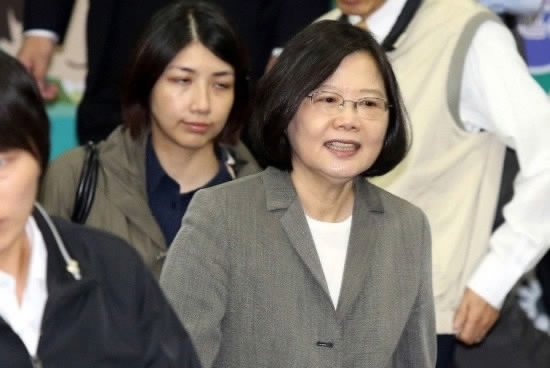
Opinions
16:51, 20-Jan-2018
Opinion: People-to-people exchanges put cross-Strait relations on solid footing
Guest commentary by Zhong Houtao

The year 2018 marks the 30th anniversary of Taiwan's decision to allow citizens to visit relatives in the Chinese mainland. For the past 30 years, the people-to-people exchanges have been pushing forward the cross-strait relations, especially at a time when the official dialogue between the two sides has not been resumed. In future, it will continue to play a “cornerstone” role in maintaining the peaceful development across Taiwan Strait and in pushing the final reunification between the two sides.
On January 19, 1978, the first group from Taiwan after 1949 arrived in the Chinese mainland and this gradually enabled the people-to-people exchanges between the two sides. From then on, hundreds and thousands of Taiwan people flood into the Chinese mainland for tourism, work, and study. People from the mainland also visited Taiwan for the same reasons. According to statistics released on January 17 by the Taiwan Affairs Office of the State Council, about 5.87 million people from Taiwan came to the Chinese mainland, which marks the highest level in history. At the same time, the trade volume between the two sides in 2017 reached 199.39 US dollars, which also hits the highest point in history.

/VCG Photo
/VCG Photo
From people-to-people exchanges between the two sides over the past 30 years, we could gain many experiences. And one of them is “One-China Principle” that is the political basis for the cross-Strait relations. If Taiwan authority recognizes “One-China Principle”, then the two sides could enjoy smooth relations. However, if the Taiwan authority refuses to recognize the principle, then the cross-Strait relations will face many challenges and obstacles, and Taiwan will not enjoy a conducive environment for its own economic and social development.
Ever since taking her office on May 20, 2016, Tsai Ing-wen has denied recognizing the “1992 consensus” and its core connotation “One-China Principle”. For this reason, the official dialogue between the two sides has been suspended, and the cross-Strait relations worsened. But the people-to-people exchanges have gained enough momentum to achieve warm relations between the two sides.

Taiwan leader Tsai Ing-wen's refusal to recognize the 1992 Consensus has hampered cross-Strait communication. /Taiwan.cn
Taiwan leader Tsai Ing-wen's refusal to recognize the 1992 Consensus has hampered cross-Strait communication. /Taiwan.cn
The increasing number of people-to-people exchanges have political implications. Many Taiwan people, after visiting the Chinese mainland, gradually realize the danger that the idea of “Taiwan Independence” poses, and also recognize the historical trend of peaceful reunification. The people-to-people close exchanges also help the cross-Strait relations to move on in the right course and help the two sides to establish warm relations and open up new prospects for the two sides to build a community of shared destiny across Taiwan Strait.
In the 19th Party Congress Report, the General Secretary of the Communist Party of China Central Committee, Xi Jinping, states that the Chinese mainland is ready to share the development opportunities for Taiwan compatriots, and will expand cross-Strait economic and cultural exchanges and cooperation between the two sides for mutual benefits. Xi also said that over time the mainland would treat Taiwan compatriots as locals when they pursue their studies, start businesses, seek jobs, or live on the mainland. From this, we could conclude that in future, no matter if Tsai Ing-wen recognizes the “1992 consensus” or not, the people-to-people exchanges will continue to play a rational role in the cross-Strait relations, and they will also help to prepare a solid ground for the final reunification between the two sides.
(The author is the Research Associate at the Taiwan Studies Institute, Chinese Academy of Social Sciences. The article reflects the author's opinion, and not necessarily the views of CGTN.)

SITEMAP
Copyright © 2018 CGTN. Beijing ICP prepared NO.16065310-3
Copyright © 2018 CGTN. Beijing ICP prepared NO.16065310-3